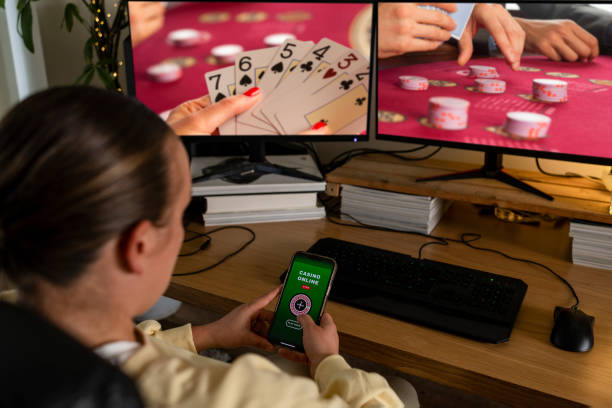Mastering poker requires more than just luck; it demands patience and strategic thinking. One of the biggest lessons pokers teaches is how to remain calm under pressure. Players often face tough decisions and must wait for the right moment to act. This ability to pause and assess the situation carefully can translate into better decision-making in daily life. Instead of rushing, poker players learn to evaluate options and potential outcomes, which helps them in business, relationships, and personal challenges. The discipline developed at the poker table sharpens judgment and reduces impulsive choices.
Reading Opponents Enhances Emotional Intelligence and Social Awareness
Reading opponents is an essential skill in poker that challenges players to pay attention to subtle clues. Observing how others behave, their betting patterns, and body language can provide insights into their hands. This skill of observation builds emotional intelligence and social awareness. Outside of poker, being able to pick up on small details improves communication and understanding. The practice of carefully watching others to predict behavior strengthens empathy and helps build better relationships by tuning into people’s unspoken signals.
Bankroll Management Teaches Financial Responsibility and Discipline
Bankroll management is crucial for success in poker and is a lesson in financial responsibility. Skilled players set limits on how much they are willing to risk and avoid chasing losses. This approach encourages discipline in handling money and teaches players to budget carefully. Applying these principles beyond poker helps individuals develop better money habits. Whether managing personal finances or business expenses, the skill of careful planning and risk assessment can prevent unnecessary debt and promote long-term financial stability.
Adaptability is Key to Handling Change and Unexpected Challenges
Poker also fosters adaptability, as the game constantly changes based on opponents’ moves and new cards. Successful players stay flexible and adjust their strategies in real-time. This ability to pivot quickly when plans don’t go as expected is valuable in everyday life. Whether facing work challenges or personal setbacks, being adaptable helps people respond effectively to change. The lessons learned through poker about flexibility encourage creative problem-solving and resilience in unpredictable situations.
Bluffing Builds Confidence and the Art of Timing in Decision-Making
Bluffing is a unique aspect of poker that teaches the importance of confidence and timing. Knowing when to bluff and when to fold requires a balance of courage and caution. This skill builds self-assurance and the ability to take calculated risks. In life, having the confidence to present oneself strongly, even when uncertain, can open new opportunities. Learning to read the room and gauge when to push forward helps build leadership qualities and assertiveness.
Playing Poker Sharpens Focus and Mental Concentration
Poker’s mix of skill and chance makes it a powerful way to develop focus and concentration. Players must keep track of multiple factors, such as the cards on the table and betting amounts. This mental workout improves attention span and sharpens cognitive functions. In other areas, better focus leads to increased productivity and clearer thinking. The intense concentration needed in poker encourages mindfulness and the ability to stay present in complex situations.
Conclusion
Poker is more than just a card game; it offers valuable life lessons through its challenges. The skills of patience, strategic thinking, observation, financial discipline, adaptability, confidence, and focus gained from playing poker can improve everyday decision-making and personal growth. By applying these qualities beyond the poker table, players can enhance relationships, career prospects, and overall resilience. Poker cultivates a mindset that encourages thoughtful choices and emotional control, which benefits many aspects of life.
